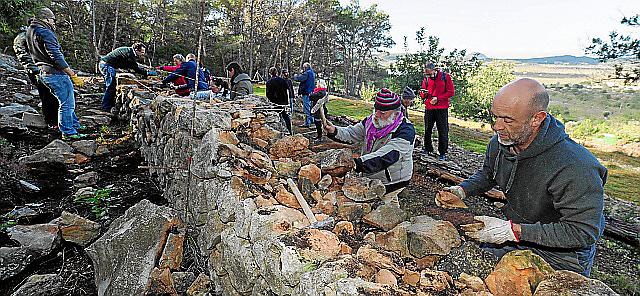The UN cultural agency announced the news on Twitter yesterday. UNESCO thanked the countries that presented the bid: as well as Spain, Croatia, Cyprus, France, Greece, Slovenia, Italy and Switzerland.
UNESCO recognised the art of dry-stone walls and the way in which they are built with stones piled onto others without using any other material except dry earth.
It is a technique that dates back to prehistoric times and is indicative of the harmonious relationship between humans and the natural world.
The committee which oversees the declarations said that the dry-stone nomination is in accordance with criteria of intangible cultural heritage.
These include the technique being a “living” one, i.e. it is still very much in use, and the fundamental role it plays in maintaining the environment and landscape.
UNESCO was particularly impressed by the international collaboration in exchanging best practices for the continuance of the technique.
The Spanish bid included the backing of the Balearics along with Andalusia, Aragon, Asturias, the Canary Islands, Catalonia, Extremadura, Galicia and Valencia.

